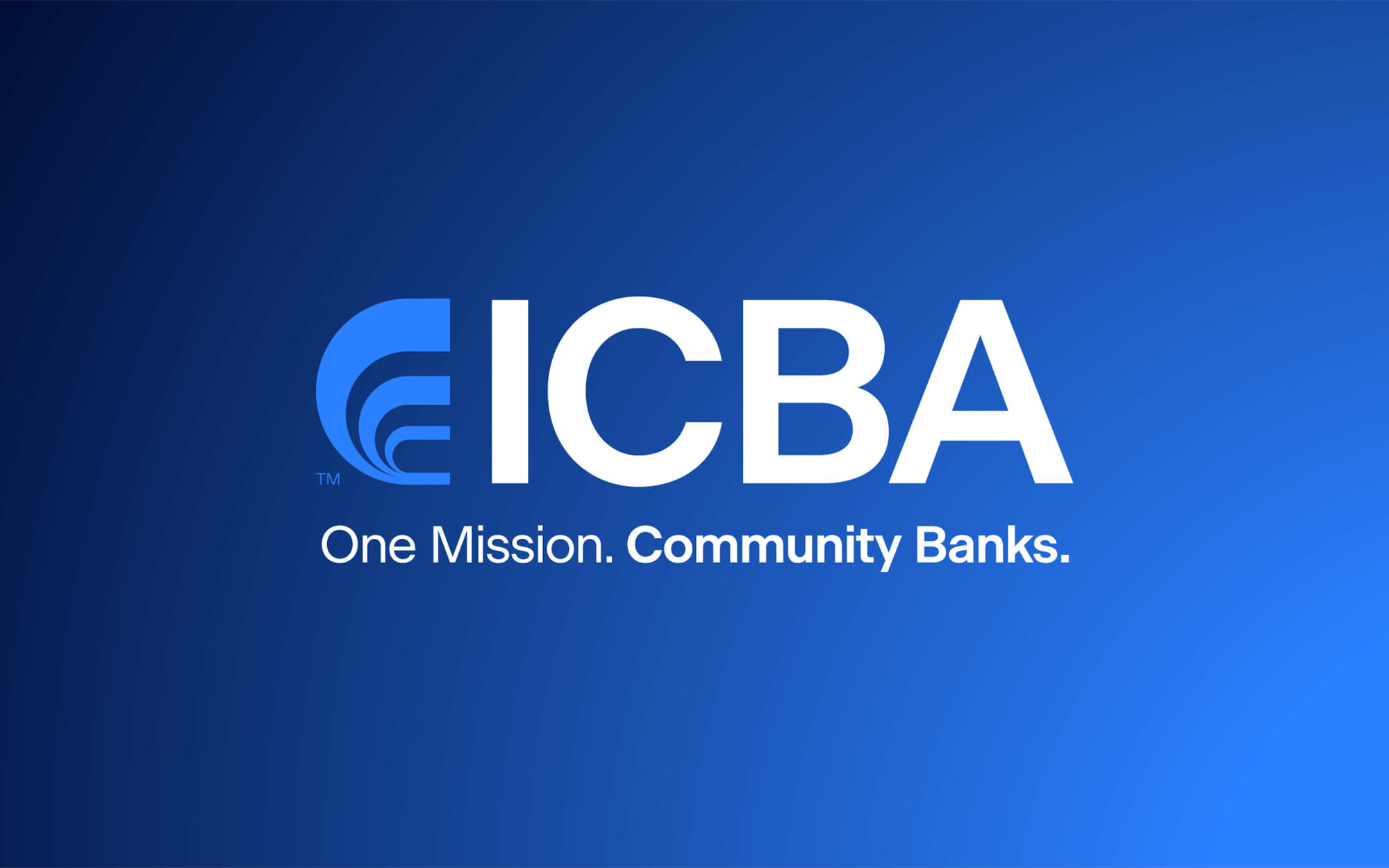Dear Senator or Representative:
On behalf of community banks [1] across the country, I write to congratulate you on being sworn in as a Member of the 117th Congress! This is a time of historic challenge and historic opportunity. The work you do in this Congress will help us to finally move past a deadly and economically costly pandemic and set the trajectory for fundamental aspects of American economic life for a generation.
An Opportunity for Enduring, Bipartisan Solutions
A thriving community banking industry is critical to restoring jobs, creating economic opportunity for all, and realizing our economic potential as a nation. We take this opportunity to share with you our policy priorities for the 117th Congress.
The new Congress will be closely divided, but it need not be gridlocked. We simply cannot afford to lose this opportunity to provide relief from the current crisis and to implement solutions that will strengthen our economy in the recovery and thereafter for the benefit of all Americans. Compromise will be the only means of moving forward. ICBA’s track record of working with both parties and crafting bipartisan solutions is well suited to this occasion. We have always found that the most effective, lasting solutions are grounded in consensus.
Community Banks and the Paycheck Protection Program
At a moment of national crisis, community banks distinguished themselves by rapidly processing PPP applications and deploying critical funds to small businesses. Community banks have made 60 percent of PPP loans which have supported the retention of over 3.7 million employees. In addition, 72.6 percent of PPP loans to minority-owned small businesses, 71.5 percent of PPP loans to women-owned small business, and 63.4 percent of PPP loans to veteran-owned small businesses were made by community banks.
ICBA Agenda for the 117th Congress
ICBA’s immediate priority is to work with Congress to create a financial bridge over the current, temporary crisis to the resumption of robust commerce and economic growth. Community bankers believe our economy is fundamentally strong and that well designed policies will allow this strength to reemerge.
The March 2020 CARES Act played a critical role in sustaining the economy in the early months of the pandemic. ICBA supports the renewed CARES Act programs contained in the December Economic Aid Act, including a second-draw Paycheck Protection Program, the extension of bank capital and accounting relief, and appropriate tax relief.
Looking to the Post-Pandemic Recovery
Regulatory Relief to Promote Economic Growth and Job Creation
Promoting De Novo Community Banks. In recent years, the pace of de novo bank formation has slowed to a trickle. De novo formation is needed to offset the loss of smaller community banks through consolidation and help ensure a robust community bank landscape serving small businesses and households.
ICBA supports a flexible and tailored supervisory policy for de novo banking applicants. Capital standards, exam schedules, and other supervisory requirements should be based on the pro forma risk profile and business plan of the applicant and not on a standard policy that applies to all de novo bank applicants.
Supporting Minority Depository Institutions. Minority owned depository institutions (“MDI” or minority banks) play a unique role serving as catalysts for economic growth and revitalization in the neighborhoods they serve.
Minority banks are committed to the social mission of helping to improve lives and stabilize neighborhoods despite the difficulties and challenges of operating in distressed communities. It is crucial that minority banks have the legislative, regulatory, and financial support they need to stay operational and profitable.
Banking Services for Legal Cannabis-Related Businesses. As more states legalize cannabis for medical and/or recreational use, it is critically important as a matter of public safety that cannabis-related businesses, as well as those businesses that serve them, have access to the traditional banking system, rather than operate exclusively in cash. ICBA supports legislation that would create a safe harbor from federal sanctions for financial institutions that serve cannabis-related businesses in states where cannabis is legal.
Modernizing the Bank Secrecy Act. ICBA recommends raising the currency transaction report (CTR) threshold from $10,000 to $30,000 and indexing future increases on an annual basis. The current threshold, set in 1970, is significantly outdated and captures far more transactions than originally intended. A higher threshold would produce more targeted, useful information for law enforcement. ICBA also supports the creation of a tax credit to offset the cost of BSA compliance.
A Competitive Landscape for a Dynamic Economy
No Regulatory Subsidy for Fintech. Congress should ensure that online marketplace lenders or other fintech companies are not given an unfair regulatory advantage over depository institutions such as community banks. In particular, the OCC should not issue a special purpose charter for fintech companies in the absence of explicit statutory authority from Congress. Any new federal charter should be subject to the same standards of safety, soundness, and fairness as other federally chartered institutions.
ILC Loophole Promotes Corporate Consolidation and Threatens the Federal Safety Net. Congress needs to act to close the industrial loan company (ILC) loophole. A loophole in the Bank Holding Company Act allows commercial companies and fintech companies to own or acquire ILCs without being subject to federal consolidated supervision. ILCs are the functional equivalent of full-service banks.
Commercial company ownership of ILCs will effectively combine banking and commerce, contrary to long-standing American economic policy prohibiting ownership or control of banks by commercial firms to preserve fair and competitive access to credit. In the new era of dominant Big Data, social media and e-commerce conglomerates, artificial intelligence, and financial technology, we should be cautious before giving these companies yet more reach into the economic life of Americans. Any such far reaching change should be debated by Congress. ICBA supports statutory closure of the ILC loophole.
Curb or Eliminate Tax Subsidies for Rapid-Growth, Bank-Like Credit Unions. Tax-exempt credit unions have become virtually indistinguishable from tax-paying commercial banks. Today’s larger, growth-oriented credit unions are leveraging their tax subsidy to purchase tax-paying community banks. This trend will reduce consumer choice and erode the tax base of states and localities.
Importantly, it will create a “brain drain” of specialized local lending expertise at an especially critical time: during a pandemic and the coming recovery. ICBA urges Congress to restore balance to the American financial services marketplace and help close the growing budget deficit by re-examining the justification for the outmoded, 100-year-old credit union tax subsidy.
Farm Credit System Crowding Out Rural Community Bank Lending. Farm Credit System (FSC) lenders enjoy unfair advantages over rural community banks and leverage their tax and funding advantages as government sponsored enterprises (GSEs) to siphon the best loans away from community banks. The FCS is the only GSE that competes directly against private sector lenders at the retail level.
FCS was chartered by Congress to serve bona fide farmers and ranchers and a narrow group of farm-related businesses. In recent years FCS has sought non-farm lending powers in an effort to compete directly with commercial banks for non-farm customers.
Incentivizing Credit for Low- and Middle-Income Customers and American Agriculture. ICBA supports the creation of new tax credits or deductions for community bank lending to low- and moderate-income individuals, businesses, and farmers and ranchers. Such tax credits or deductions would help to sustain and strengthen lending to these borrowers and would help to offset the competitive advantage enjoyed by tax-exempt credit unions and Farm Credit System lenders.
Housing Finance Reform Must Support the Mortgage Market and Taxpayers. Reform efforts must provide robust and equitable secondary market access for lenders of all sizes, ensure no competition from the GSEs at the retail level, and permit retention of mortgage servicing rights on transferred loans. ICBA does not support reform proposals that would liquidate and distribute the GSEs’ assets, intellectual property, or infrastructure to the largest national lenders and Wall Street institutions.
Postal Banking. ICBA opposes well intended but ultimately counterproductive proposals to allow the U.S. Postal Service (USPS) to offer financial products and services. The encroachment into these activities by a major federal agency would represent a significant, government-sponsored, competitive threat to the ongoing viability of the nation’s thousands of private-sector, tax-paying community banks. Financial services are best provided in a competitive, private, and free marketplace that openly and efficiently benefits customers.
ICBA believes that the policy recommendations outlined in this letter will play a critical role in creating a robust post-pandemic recovery and charting a course for inclusive growth and a more competitive economy that serves small businesses and consumers. We look forward to meeting with you soon to discuss these proposals in more detail.
Thank you for your consideration.
Sincerely,

Rebeca Romero Rainey
President & CEO
[1] With more than 50,000 locations nationwide, community banks constitute 99 percent of all banks, employ nearly 750,000 Americans and are the only physical banking presence in one in three U.S. counties. Holding more than $5 trillion in assets, more than $4 trillion in deposits, and more than $3.4 trillion in loans to consumers, small businesses and the agricultural community, community banks channel local deposits into the Main Streets and neighborhoods they serve, spurring job creation, fostering innovation and fueling their customers’ dreams in communities throughout America.






